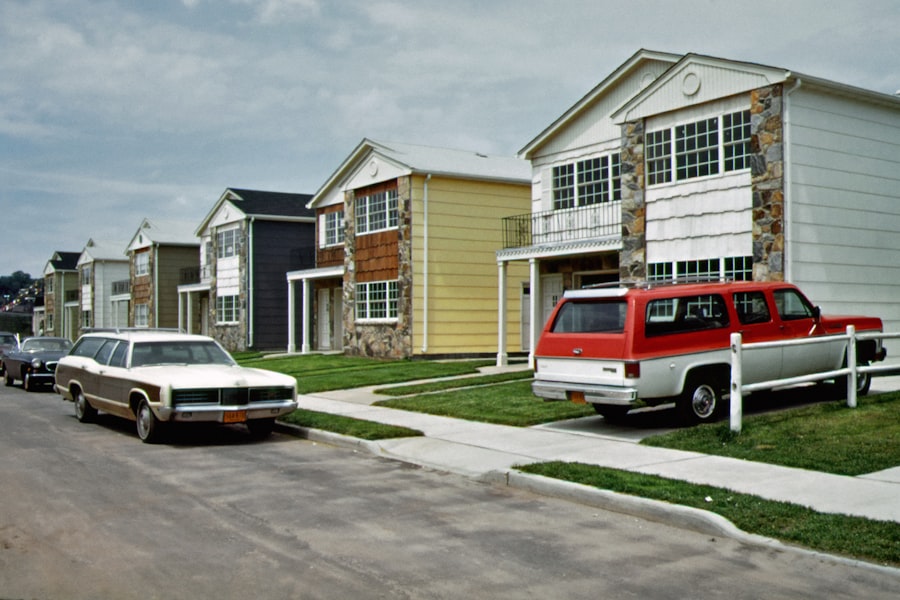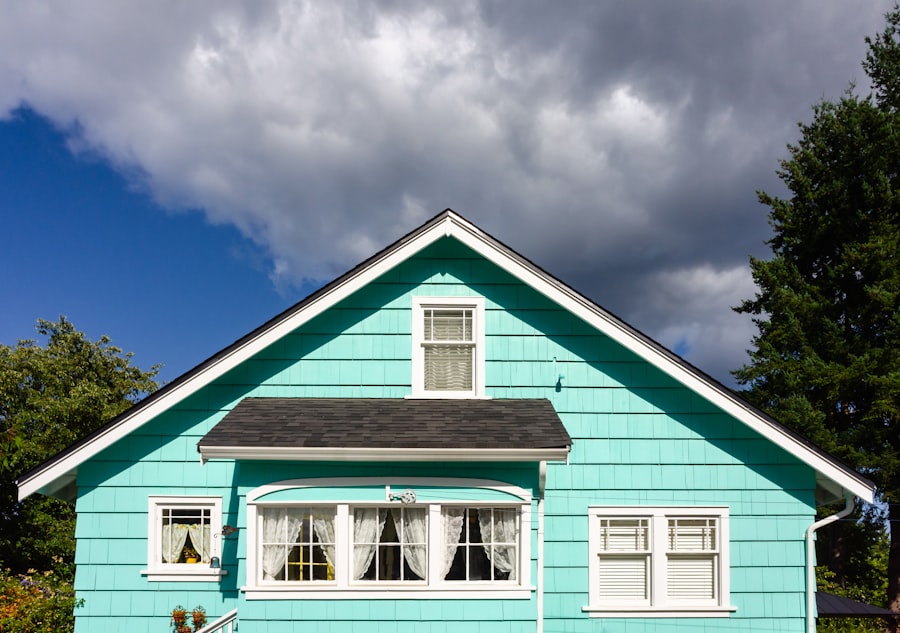Mobile home living offers a unique blend of affordability, flexibility, and community that appeals to a diverse range of individuals and families. One of the most significant advantages is the cost-effectiveness associated with purchasing and maintaining a mobile home compared to traditional housing. The initial investment is often substantially lower, making it an attractive option for first-time homebuyers or those looking to downsize.
Additionally, mobile homes typically incur lower property taxes and insurance costs, which can lead to significant savings over time. This financial accessibility allows residents to allocate their resources toward other essential areas, such as education, travel, or retirement savings. Another compelling benefit of mobile home living is the sense of community that many mobile home parks foster.
These communities often encourage social interaction among residents through organized events, shared amenities, and communal spaces. This environment can be particularly appealing for families, retirees, or individuals seeking companionship and support. Furthermore, many mobile home parks are located in desirable areas, providing residents with access to local amenities such as shopping centers, parks, and recreational facilities.
The combination of affordability and community can create a fulfilling lifestyle that is often hard to find in traditional housing markets.
Key Takeaways
- Mobile home living offers affordable and flexible housing options.
- Understanding costs and financing is crucial for mobile home buyers.
- Finding budget-friendly communities and homes requires research and tips.
- Proper maintenance helps preserve mobile home value and comfort.
- Customization and future trends make mobile homes increasingly appealing.
Understanding the Cost of Mobile Homes
When considering mobile home living, it is crucial to understand the various costs associated with purchasing and maintaining a mobile home. The price of a mobile home can vary widely based on factors such as size, age, location, and condition. On average, new single-section mobile homes can range from $50,000 to $100,000, while larger double-section models may cost between $100,000 and $200,000.
Used mobile homes can be significantly cheaper, but potential buyers should be cautious about hidden repair costs that may arise from older models. In addition to the purchase price, prospective mobile home buyers should also factor in ongoing expenses such as lot rent (if applicable), utilities, maintenance, and insurance. Lot rent can vary depending on the location and amenities offered by the mobile home park; it can range from $300 to over $1,000 per month.
Utilities such as water, electricity, and gas are typically the responsibility of the homeowner and can fluctuate based on usage. Understanding these costs is essential for budgeting effectively and ensuring that mobile home living remains a financially viable option.
Tips for Finding Affordable Mobile Homes

Finding an affordable mobile home requires a strategic approach and thorough research. One effective method is to explore online listings on platforms dedicated to real estate or specifically mobile homes. Websites like Zillow, Realtor.com, and specialized sites like MHBay.com provide extensive listings that allow buyers to filter by price range, location, and other criteria.
Additionally, local classifieds and social media marketplaces can yield hidden gems that may not be listed on larger platforms. Networking within local communities can also be beneficial when searching for affordable mobile homes. Engaging with local real estate agents who specialize in mobile homes can provide insights into upcoming listings or properties that may not yet be on the market.
Attending open houses or community events in mobile home parks can also help potential buyers connect with current residents who may know of available homes for sale. By leveraging both online resources and community connections, buyers can increase their chances of finding an affordable mobile home that meets their needs.
Financing Options for Mobile Home Buyers
| Financing Option | Typical Interest Rate | Loan Term | Down Payment | Eligibility Requirements | Notes |
|---|---|---|---|---|---|
| Chattel Loan | 6% – 12% | 5 – 20 years | 5% – 20% | Good credit score, mobile home must be personal property | Loan for mobile homes not permanently affixed to land |
| FHA Title I Loan | 5% – 8% | 10 – 20 years | 10% – 20% | Creditworthy borrower, mobile home can be new or used | Government-backed loan for mobile homes and improvements |
| FHA Title II Loan (Manufactured Home Loan) | 4% – 7% | 15 – 30 years | 3.5% minimum | Must meet FHA property standards, borrower credit check | Similar to traditional mortgage, for homes permanently affixed |
| Personal Loan | 8% – 20% | 1 – 7 years | Varies | Based on creditworthiness | Unsecured loan, higher interest rates |
| Home Equity Loan | 4% – 8% | 5 – 15 years | Varies | Must own a home with equity | Uses existing home equity as collateral |
| Rent-to-Own | N/A | Typically 1 – 3 years | Option fee (varies) | Depends on agreement | Allows buyer to rent with option to purchase later |
Financing a mobile home can differ significantly from traditional home financing due to the unique nature of these properties. Many lenders offer specific loans tailored for mobile homes, which can include chattel loans or personal loans rather than conventional mortgages. Chattel loans are secured by the mobile home itself rather than the land it sits on, making them a popular choice for buyers who are purchasing a home in a mobile home park where they do not own the land.
Another financing option is obtaining a conventional mortgage if the mobile home is permanently affixed to a foundation and classified as real property. This type of financing often comes with lower interest rates and longer repayment terms compared to chattel loans. However, buyers should be aware that qualifying for a mortgage may require a higher credit score and a larger down payment.
Additionally, some government programs, such as FHA loans, offer financing options specifically designed for manufactured homes, making it easier for buyers to secure funding while benefiting from lower down payment requirements.
Budget-Friendly Mobile Home Communities
When searching for budget-friendly mobile home communities, it is essential to consider various factors that contribute to affordability without sacrificing quality of life. Many communities offer amenities such as swimming pools, clubhouses, and recreational facilities that enhance the living experience while keeping costs manageable. Researching different parks in your desired area can reveal options that provide both affordability and a sense of community.
Some budget-friendly communities may also offer incentives for new residents or reduced lot rents for the first few months of occupancy. It is advisable to inquire about any special promotions or discounts when visiting potential parks. Additionally, some communities may have age restrictions or specific demographic focuses (such as family-friendly or senior living), which can influence the overall atmosphere and affordability of the park.
By carefully evaluating these factors, prospective residents can find a community that aligns with their budgetary constraints while still offering a vibrant living environment.
Maintenance and Upkeep of Mobile Homes

Maintaining a mobile home requires diligence and attention to detail to ensure its longevity and comfort. Regular upkeep is essential to prevent minor issues from escalating into costly repairs. One critical aspect of maintenance is inspecting the exterior for signs of wear and tear, such as cracks in the siding or roof leaks.
Addressing these issues promptly can help protect against water damage and structural problems. Interior maintenance is equally important; homeowners should regularly check plumbing fixtures for leaks and ensure that heating and cooling systems are functioning efficiently. Seasonal maintenance tasks such as cleaning gutters, checking insulation, and servicing HVAC systems can prolong the life of the home and enhance energy efficiency.
Establishing a routine maintenance schedule can help homeowners stay organized and proactive in caring for their mobile homes.
Customizing Your Mobile Home on a Budget
Customizing a mobile home allows residents to create a space that reflects their personal style without breaking the bank. One cost-effective way to achieve this is through DIY projects that enhance both aesthetics and functionality. Simple updates such as painting walls or refinishing cabinets can dramatically change the look of a space without requiring significant financial investment.
Choosing trendy yet affordable materials like peel-and-stick backsplash tiles or laminate flooring can also provide an updated appearance at a fraction of the cost of traditional renovations. Incorporating smart storage solutions is another way to customize a mobile home while maximizing space efficiency. Utilizing vertical storage options like shelving units or wall-mounted organizers can help keep living areas tidy without sacrificing style.
Additionally, adding personal touches through decor—such as artwork, plants, or textiles—can create a warm and inviting atmosphere without necessitating major renovations. By focusing on small-scale projects and creative solutions, homeowners can effectively customize their mobile homes while adhering to budget constraints.
The Future of Affordable Mobile Home Living
The future of affordable mobile home living appears promising as societal trends shift toward more sustainable and economical housing solutions. With rising housing costs in urban areas leading many individuals to seek alternative living arrangements, mobile homes present an attractive option for those looking for affordability without compromising quality of life. As awareness grows regarding the benefits of manufactured housing—such as reduced environmental impact due to smaller footprints—more people may consider this lifestyle choice.
Moreover, advancements in technology are likely to play a significant role in shaping the future of mobile home living. Innovations in construction methods and materials could lead to more energy-efficient designs that appeal to environmentally conscious consumers. Additionally, smart home technology integration may become increasingly common in mobile homes, enhancing convenience and security for residents.
As these trends continue to evolve, mobile home living may solidify its position as a viable solution for affordable housing in an ever-changing economic landscape.



